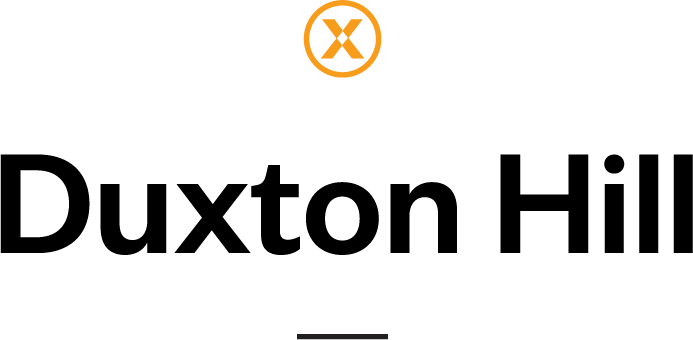Discovery Obligations and Privileges against Exposure to Penalties and Self-Incrimination
Case Note: Spotlight Pty Ltd v Mehta [2020] FCA 1422
If civil proceedings are commenced against you alleging fraud or misconduct, do you have to disclose documents – such as bank records, emails, and text messages – that could expose you to a civil penalty or further criminal proceedings?
A recent decision of the Federal Court of Australia in Spotlight Pty Ltd v Mehta clarifies the discovery obligations for respondents facing this situation.
The decision serves as a reminder for commercial lawyers who may be accustomed to complying with routine discovery requests from opponents. It is important to keep in mind the possibility that related criminal proceedings may follow civil recovery, so as not to inadvertently waive privilege against exposure to penalties or the privilege against self-incrimination.
Background
The decision in Spotlight Pty Ltd v Mehta was part of a wider civil case where Spotlight – the nationwide fabric and interior design retailer – alleged that two of its former employees had engaged in “dishonest and fraudulent conduct” by obtaining secret commissions in the course of their employment.
Spotlight framed its civil claim against the respondents as a breach of fiduciary duties and in contravention of duties under the Corporations Act 2001 (Cth). It is possible, however, that Spotlight’s allegations could form the basis for law enforcement and corporate regulators to bring separate criminal or civil actions against the respondents. This is because the receipt of a secret commission by an employee is potentially a criminal offence[1] and a breach of an employee’s corporate duties carries possibility of a civil penalty.[2]
Discovery Obligations and Claiming Privilege
In civil litigation, after the claim and defence has been filed, the court can order parties to give discovery. The purpose of the discovery process is to overcome an information problem. That is, a party may not know what evidence the counterparty has in their possession or control that may be directly relevant to the proceedings. The standard order for discovery is for parties to conduct a reasonable search and make discovery of those documents on which the party relies, documents which adversely affect its case, documents which adversely affect another party’s case and documents which support another party’s case.[3] In theory, the discovery process seeks to narrow the issues in dispute, avoids surprises at trial, and promotes an efficient and timely resolution of the dispute. Ordinarily, this process is managed by the parties with limited judicial oversight unless there is a dispute.
Practically speaking, the discovery process requires parties to serve a list of documents verified by an affidavit.[4] This will indicate the documents that a party claims privilege over. The law recognises a number of privileges that allow a party or witness to refuse to answer or to provide evidence.[5] While privilege is ordinarily claimed in making discovery to resist the production of documents to the opposing party, the case of Spotlight Pty Ltd v Mehta shows that privilege can extend to complying with discovery itself.
In Spotlight Pty Ltd v Mehta the respondents raised two separate privileges – the privilege against exposure to penalties (known as ‘penalty privilege’) and the privilege against self-incrimination. The rationale for both privilege are similar in nature hinging on the presumption of innocence – law enforcement and regulators are required to prove their case against someone without using the coercive power of the court against them. The operation of the privileges will depend on how the civil case is framed and the likelihood of additional proceedings being brought. The key issue in dispute before the court was whether complying with discovery obligations would “create or increase a real and appreciative risk of exposure to criminal prosecution or of civil penalties being brought against” the respondents.[6]
Court’s decision
In Spotlight Pty Ltd v Mehta the respondents provided confidential affidavits to the court that set out the basis for the privilege claims. Ultimately, the court was not satisfied that there was “any real or appreciable risk of separate civil penalty proceedings being brought against either respondent in relation to contraventions.” However, the court was satisfied in relation to the risk of criminal proceedings with Justice Bromwich finding that:
The nature of the scheme alleged against the respondents is, as pleaded, one of obtaining secret commissions. Proving this to a civil standard, aided by discovery, is likely to go some way towards assisting in making not just the present civil case stronger, but also making the basis for a possible criminal case stronger. This therefore increases the risk of a criminal prosecution taking place, including by assisting in the proof of the provenance or authenticity of documents, or knowledge or some other mental state in respect of particular transactions.[7]
On this basis the court held that the respondents were not required to produce bank statements, emails, or provide further details of documents no longer in their possession.
Key takeaways
- In cases alleging fraud or misconduct, the privileges against exposure to penalties and self-Incrimination should be front of mind in the discovery process.
- Privilege can extend to both discovery and production.
- Respondents seeking to resist discovery obligations can bring an application to the court along with a confidential affidavit setting out the basis of the privilege claim.
Note: Duxton Hill acted for the second respondent in this case. This article is for information purposes only and is not legal advice. If you wish to obtain advice about a particular matter, please contact Duxton Hill.
[1] See Crimes Act 1958 (Vic), s. 176.
[2] See Corporations Act 2001 (Cth), ss. 182, 206C, 1317E, 1317G.
[3] Federal Court Rules 2011 (Cth), r. 20.14.
[4] Federal Court Rules 2011 (Cth), rr. 20.16, 20.17, 20.22.
[5] See e.g., Dyson Heydon, Cross on Evidence (LexisNexis, 19th ed, 2019).
[6] Spotlight Pty Ltd v Mehta [2020] FCA 1422, [39].
[7] Spotlight Pty Ltd v Mehta [2020] FCA 1422, [42].

Recent Comments